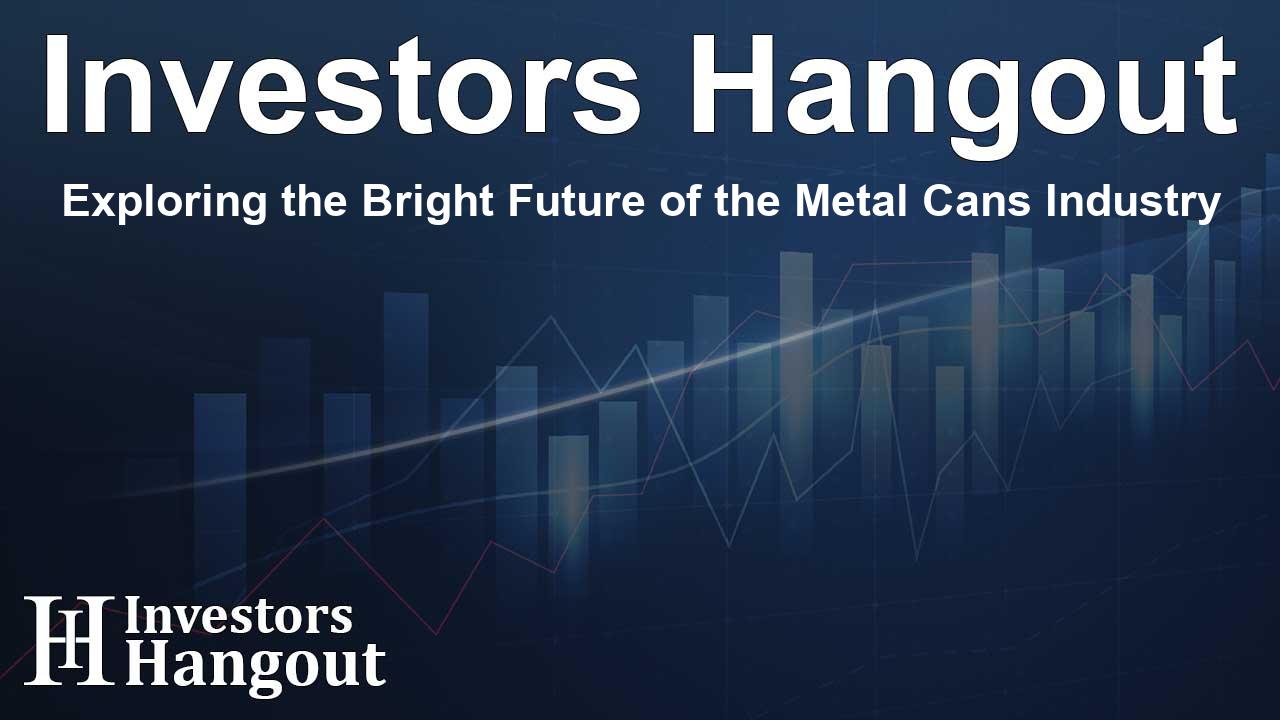Exploring the Bright Future of the Metal Cans Industry

Growing Demand for Metal Cans: A Sustainable Choice
Metal cans have become a leading form of packaging in the food and beverage sector, known for their ability to extend shelf life and resist contaminants. Their design allows for optimal safeguarding against elements like moisture and bacteria, ensuring that food and beverages remain fresh. Recognized for their recyclability, metal cans are not only environmentally friendly but are also incredibly versatile in shaping. The ongoing emphasis on sustainability in consumer choices is driving the substantial growth in the metal can market.
Market Insights and Projections
Recent studies have highlighted the steady growth of the metal cans market as it is projected to surge to USD 81.5 billion by 2032. This marks a significant increase from its initial valuation of USD 66.4 billion in 2023, demonstrating a robust CAGR of 2.3%. Such growth is attributed largely to the increasing demand for sustainable packaging options, particularly in the beverage sector, where consumer awareness of environmental issues continues to rise.
Historical Importance and Modern-Day Relevance
Historically, metal cans have played a critical role in food preservation since their inception in 1813, initially designed for items like meats and oysters. Today, they are used for a wide variety of products, ranging from beverages to healthcare items. The global preference for convenience and portable packaging is significantly boosting the demand for metal cans, especially in the ready-to-drink beverage market.
Significant Drivers of Market Growth
The metal cans market's advancement corresponds with several primary factors:
Recyclability and Environmental Impact
The ability to endlessly recycle metal cans without compromising quality positions them as a sustainable choice that appeals to both consumers and companies. For instance, recycled aluminium requires much less energy—up to 95% less—than producing new. This remarkable efficiency aligns with global sustainability goals and fosters continuous demand.
Beverage Sector Expansion
Heightened growth in the beverage industry drives the demand for aluminum cans significantly. More than 75% of new beverage launches now utilize cans, demonstrating a marked shift from traditional bottling. This trend is particularly notable in regions like North America, where convenience and eco-conscious packaging are paramount. Craft beers and ready-to-drink beverages are further elevating can consumption in the market.
Competitive Landscape and Innovations
The competition in the metal can market is fierce, with numerous alternatives like plastic and glass vying for market share. Yet, metal cans maintain strong positioning partly due to recent innovations and strategic partnerships. For instance, the partnership between Sonoco Products Company and Eviosys has cemented Sonoco’s reputation as a leader in metal packaging while enhancing sustainability initiatives.
Emerging Trends in Packaging
The demand for convenient packaging solutions is escalating, driven by fast-paced lifestyles. Metal cans provide the ideal solution, catering to the need for portability, especially in the beverage sector. This heightened demand is also reflected in advancements in tinplate packaging, which is becoming increasingly popular for its affordability and eco-friendliness.
Key Players and Industry Developments
The metal cans market consists of prominent players such as Amcor plc, Ball Corporation, and Crown Holdings Inc., which are pivotal in shaping the market dynamics through innovation and strategic acquisitions. Recent endeavors include Ball Corporation's new can production facility in Nevada aimed at addressing rising aluminum can demand. Advances in canning technology are pushing the market towards sustainable and premium packaging opportunities.
Future Market Dynamics
As industries across the globe become more focused on sustainability and circular economy principles, the demand for metal cans is likely to soar. With strict regulations on single-use plastics and a growing consumer base that values environmental responsibility, the future of metal cans appears incredibly promising. Stakeholders who align their products with these growing trends stand to benefit immensely.
Frequently Asked Questions
What factors are driving the growth of the metal cans market?
The growth is primarily driven by the increasing demand for sustainable packaging solutions and expansion in the beverage industry, particularly for convenient and portable options.
How do metal cans impact the environment?
Metal cans are highly recyclable, requiring significantly less energy to recycle compared to producing new materials, thereby reducing carbon emissions and waste.
Who are the key players in the metal cans industry?
Major players include Amcor plc, Crown Holdings Inc., and Ball Corporation, all of which lead in innovation and sustainability efforts.
What technological advancements are enhancing the metal cans market?
Innovations in canning technology, such as energy-saving production lines, are improving efficiency and sustainability in metal can manufacturing.
What does the future hold for metal cans as a packaging option?
With a focus on eco-friendly solutions, the metal cans market is poised for growth, particularly in sectors like beverages where sustainability is increasingly prioritized.
About Investors Hangout
Investors Hangout is a leading online stock forum for financial discussion and learning, offering a wide range of free tools and resources. It draws in traders of all levels, who exchange market knowledge, investigate trading tactics, and keep an eye on industry developments in real time. Featuring financial articles, stock message boards, quotes, charts, company profiles, and live news updates. Through cooperative learning and a wealth of informational resources, it helps users from novices creating their first portfolios to experts honing their techniques. Join Investors Hangout today: https://investorshangout.com/
Disclaimer: The content of this article is solely for general informational purposes only; it does not represent legal, financial, or investment advice. Investors Hangout does not offer financial advice; the author is not a licensed financial advisor. Consult a qualified advisor before making any financial or investment decisions based on this article. The author's interpretation of publicly available data shapes the opinions presented here; as a result, they should not be taken as advice to purchase, sell, or hold any securities mentioned or any other investments. The author does not guarantee the accuracy, completeness, or timeliness of any material, providing it "as is." Information and market conditions may change; past performance is not indicative of future outcomes. If any of the material offered here is inaccurate, please contact us for corrections.